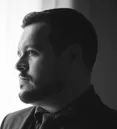Eight years after fleeing their home in Iraq, Noura and her family celebrate Christmas, and their new life, in New York City. But when the arrival of a visitor stirs up long-buried memories, Noura and her husband are forced to confront the cost of their choices; the past they left behind. Inspired by stories from Arab-American women and created in response to Ibsen’s A Doll’s House, Heather Raffo’s Noura charts the intricate pathways of motherhood and marriage—and the fragile architecture of what we call home.
Produced In Association with Golden Thread Productions.
“I am most excited to be in conversations with Marin audiences about their views of belonging, individual identity and the architecture of what they call home. As the characters of Noura attempt to balance their individual pursuits with a search for community, I believe it is quite possibly a balance with which many of us struggle.” — Heather Raffo
Run time is approximately 1 hour and 40 minutes with no intermission.
Special effects advisories: This production features the use of herbal cigarettes and simulated gunshots.
MTC provides advisories for each production regarding special effects that may affect patron health and physical sensitivities as necessary. MTC does not provide advisories relating to content, because content sensitivities vary from patron to patron. If you have questions about content, please contact the box office prior to purchasing your tickets as we do not offer refunds to patrons who choose not to see a show based on subject matter.
Generous season and program support for Noura provided by The Shubert Foundation, William & Flora Hewlett Foundation, and Relevant Wealth Advisors.

















Review: “Noura”
“I don’t want to forget. I’m trying desperately to remember who the hell I am.”
Forced by a life-threatening seize to leave her home in Mosul as a member of the Iraqi Christian community, immigrant and now American citizen Noura wants this Christmas Eve to be perfect in every respect, recalling the foods and family times of those Christmases spent in her homeland – a country whose Christian heritage can be traced back to the time of Jesus. That her husband, Tareq is happy to “feel safe for the first time in my life,” that her son Yazen (“Alex,” as he prefers to be called) knows no Arabic and only wants a Play Station, and that her life-long friend Rafa’a advises her, “Let it go, Noura, how we grew up is never coming back,” does not calm Noura’s sense of unease with her present and her longing for a recent past that others say can never again be a part of her future.
Drawing on a group of Arab-American, refugee women’s own experiences, Heather Raffo also uses also the experiences of her own father’s, Mosul family as she explores in her play, Noura, one woman’s struggles finding a balance between remembering, honoring, and continuing aspects of her past life and accepting, adjusting, and recreating a new life in a new land. The painful, sometimes all-encompassing struggles between letting go and moving on are daily, even hourly realities for the play’s forty-something, title character. Noura becomes an Every Woman representing the millions like her who have been ripped from her homeland and heritage with no hope of return. Marin Theatre Company in association with Golden Thread Productions presents the Bay Area premiere of Heather Raffo’s Noura in a one-act production (one hour, forty minutes) that even with well-placed pauses and moments of absolute silence, is fast-moving, gripping, and emotionally compelling.
Heather Raffo’s Noura is based loosely on Henrik Ibsen’s A Doll’s House; but rather than Noura being imprisoned in the confines of the male-dominated society around her as is Ibsen’s Nora, Noura is locked inside her own world of mixed dreams and reality, stuck somewhere in a purgatory between her past and her present lives. Like in A Doll’s House, it is Christmas time as the play opens. And like in Ibsen, there is also much attention being given to presents; to a female guest who suddenly arrives bringing surprises; to a family friend who reveals heretofore unspoken love for Noura; and to a past act that was committed in love but that unexpectedly resurrects as a major disruption between her and her husband. However, where these similarities lead Ibsen’s Nora to a final and defining act of feminist liberation, the play’s final expression of Raffo’s Noura is much less clear, less satisfying, and yet perhaps much more the reality of many immigrant women who like her, find themselves unstable on the foreign soil they now reside.
Denmo Ibrahim is stage-commanding in the role of Noura, a woman who teeters between assertive confidence and desperate insecurity. Following the skills of her former profession, she has in her mind an architect’s plan of how she wants this Christmas to look and to be and goes about its preparation with a bold, bullish flair. But each time someone is either too early or too late in her planned schedule of arrivals, each time even the smallest detail like her son’s rolled dolmas do not match her pre-determined picture of perfection, or each time the reality that she has painted of how things should now be is not quite what she expects – like a guest’s surprise that reveals itself once she takes off her winter coat – those are the times a look of panic, a wave of anger, or an engulfing of disappointment overtake the entire being of Denmo Ibrahim’s Noura. And in those moments, her Noura often quickly escapes her now-uncomfortable surroundings to go outside to inhale a forbidden cigarette, to think aloud (for only us to hear), and to relish the delicious coolness of falling snow – the wintery aspect of her new life that was so foreign to her former home but from which she seems now to find much solace. But what she seems unable to escape is her own near-debilitating sense of loss in being one of the “millions and millions of people [who] are flooding out with nothing … leaving behind the beginning of time.” In her own words, “No wonder so many of us are drowning.” Throughout the play, Denmo Ibrahim captures that sense of a person gasping for life-saving air in an atmosphere that is increasingly – even after eight years – stifling to her sense of well-being.
Mattico David as her husband Tareq appears on first glance to be fully at ease with his new life, home, and family. He nibbles at the neck of his wife, coaxing her to give him the one Christmas present he wants – a daughter, “an American baby,” teasing Nora, “one that smells like you and fights like you but has my sweet disposition.” Mattico David’s Tareq is in fact an easy-going charmer who lures us into believing he has fully assimilated as an ex-surgeon now working as an attendant in a local hospital’s emergency room. But his Tareq, like his wife, still has deep roots in his homeland that expose themselves in an explosion of moralities, judgments, and accusations that prove he has not himself yet let go of his past as much as he claims. Worse, he is quick to blame Noura – “You are always forcing me back there” – rather than truly owning his own ways of being stuck in that past.
Abraham Makany is the likable, even endearing Rafa’a who is best friend to both Noura and Tareq and is an annual part of their Christmas even though he is Muslim. He is particularly close and understands his childhood friend, Noura, perhaps even better than her husband. While he encourages her to “let it go,” he also admits to her, “You and I are from Mosul; we are wired to hang on.” But with that connection comes complications for the two of them, as his past silence opens up to reveal secrets.
Secrets also are multiply intertwined in the arrival of Maryam, a twenty-six-year-old Stanford student whom Noura has been the life-long, anonymous sponsor while Maryam grew up as an orphan in a Mosul nunnery. A Facebook search by Noura has led to this planned, first meeting. Maya Nazzal confidently and convincingly plays the young, recent immigrant. Her Maryam revels being fiercely independent as she daringly sets her own course in this new American life of hers. But both she and Noura have revelations to make that will send potentially destructive tremors into the still-developing foundation of their first face-to-face meetings.
Rounding out the talented cast of five is eleven-year-old Valentino Bertolucci Herrera who is in every way an all-American kid with a load of expressed cute, cuddly, and curious mannerisms that can quickly give way to his preference to run off to his room to play a video game. Unfortunately on opening night, there were times when hearing all the words of his young, rather soft voice was difficult due to a director’s blocking where he (and others) were sometimes facing away from the audience. Hopefully, this can be corrected since the young actor is overall superb in his part.
Kate Bergstrom directs the Marin production with an eye to combining artfully the realities of the comings and goings in the family’s living room and the haunting dream/thought flashes that Noura experiences at the mention of some particular word or reference. Those surreal moments are marked by flashes, switches, and changes in lighting as part of Kate Boyd’s artistically fabulous designs for the evening and by music, whispers, and other effects of Nihan Yesil’s masterfully effective sound design. Adam Rigg’s set design frames the home’s main room with a massive, unfinished border that reflects the work-still-in-progress of Noura’s furnishing her home after eight years of residence. (Her husband is prone the mention “the couch” that has never been bought.) Anna Oliver’s designs of each person’s costumes helps round out the development and exposure of their unique personalities.
As compelling as this exploration is of an immigrant’s attempt to retain enough aspects of her past to make her present feel more like the home she wants, there are times when Heather Raffo’s Nourabegins to look, sound, and feel like an Arabic-American telenovela. The dramatic revelations of long-kept secrets, the emotionally explosive reactions, and the ellipsis-like ending that seems to call for a sequel (or for next week’s episode) sometimes become momentary distractions from the overall, quite effective and effecting script, direction, and acting.
That said, Marin Theatre Company’s Noura is a night of important theatre that could hardly be timelier, given the news of not only that past couple of years but even more so, the past couple of weeks. Audiences cannot help but walk away with new insights and new questions about the experiences of recent immigrants who have literally had to leave everything from a long past and flee for their very lives to a new, completely foreign land – a land where each must now figure out when and if it can become home.
Rating: 4 E
‘Noura’ shows actor Denmo Ibrahim at the height of her powers
Heather Raffo's play about a family of Iraqi refugees a showcase for virtuoso local actor.
Noura and her family have lived in the U.S. for eight years, but their New York home still looks temporary, as if they’d just moved in.
Books and photos clump on the floor, as little heirloom islands. The only furniture is a kitchen table. And there’s a Christmas tree. Maybe Noura feels that as refugees from Mosul, Iraq, they might have to pack up and flee again. Or maybe she wonders, “What kind of home could this be, anyway?” They’re a world away from where they’re from, or what little is left of it, ever since the Christian community came under heavy attack in the wake of the U.S. invasion.
In “Noura,” whose Bay Area premiere opened Tuesday, Jan. 14, at Marin Theatre Company, in association with Golden Thread Productions, Noura can’t imagine ever again hosting her whole neighborhood for Christmas, as her father did in the old days, and Adam Rigg’s smart set design makes physical the isolation and loneliness that Noura (Denmo Ibrahim) and her husband, Tareq (Mattico David), each feel. Rigg exaggerates the way the parallel lines of her floors, walls and ceiling vanish toward a single point, making her apartment look like a severe cinder block cell, or like a giant blunt instrument. Here, atomization doesn’t just wall off and defend; it menaces.
In Heather Raffo’s shattering drama, directed with uncommon sensitivity and discernment by Kate Bergstrom, walls come tumbling down with the arrival of Maryam (Maya Nazzal). While Noura, Tareq and their son, Yazen (Valentino Bertolucci Herrera), have all finally just received their American passports — they’re now officially Nora, Tim and Alex — Maryam is a much more recent refugee from Mosul.
An orphan, she was raised in a convent by Noura’s aunt, and as an act of charity, Noura and Tareq are helping to cover her expenses as she studies at Stanford. Now, meeting Noura in person for the first time, Maryam brings an unsettling surprise. She’s pregnant but unmarried, and she doesn’t apologize for herself, which dredges up all kinds of secrets and shames for Noura and Tareq, as well as for their close friend, Rafa’a (Abraham Makany).
Ibrahim has long been a tower of strength in the Bay Area theater scene, but “Noura” showcases her powers at still loftier heights.
Many great actors can carry a whole scene on their own; Ibrahim can hold up a whole table of people with just her eyes, which might train upward in exasperation, fear, bewilderment and prayer all at once. In moments of silence, her gaze is so communicative that you might have to remind yourself she didn’t just say, “What was that?” or “Maybe he’s right.”
She’s particularly well matched by David and Makany — David with his ability to keep heaping affection and disgust into an explosive ball of confusion, Makany with his quiet focus, his understated tenacity, the leagues of grief he only hints at, by drawing an outline around the absences in Rafa’a’s life.
Each time you think you know what the crux of “Noura” is, Raffo keeps breaking the play open wider and wider, drilling, out of one prickly visit, to the heart of how her characters walk through the world and are stunted by it. Revelations of secrets pile up, and characters speak as if they expect their lines to resound off cliffs, across oceans: “It’s the weight of being erased”; “Forgive her inability to see how much you need to love her.”
In lesser hands, such moments might look cheesy or overwrought, but Bergstrom more than justifies them. Noura’s family needs to talk that way because the whole world keeps being at stake, in a new way, with each beat.
In the past couple of weeks, our world has felt newly at stake, especially in the part of the globe where Noura and her family are from. Raffo’s play is the tale of survivors, and the tentative, repressed lives they’ve eked out suggest a constant backdrop of death and destruction and loss.
Surviving isn’t living, “Noura” points out, and it’s certainly not the same as loving. Surviving is holding in abeyance until you can live and love again, and you can still be in survival mode long after an invasion, long after fleeing.
A refugee ‘Doll’s House’ crumbles at MTC
“Noura,” the latest play at Marin Theatre Company, is several things at once. Most importantly and most explicitly, it’s a drama about an Iraqi refugee family in New York City celebrating Christmas eight years after fleeing Mosul, as they grapple with what to keep of their traditions and cultural attitudes from a home that is completely destroyed and never coming back.
It’s a 2018 play by Iraqi-American playwright Heather Raffo, whose one-woman show, “9 Parts of Desire,” played Berkeley Repertory Theatre in 2006. (Both plays originally starred Raffo elsewhere.)
In part, “Noura” is also Raffo’s response to “A Doll’s House,” though it’s far from an adaptation of the classic Henrik Ibsen drama. It doesn’t borrow plot points so much as explore some similar themes, though there are some obvious parallels among the characters and the two plays share a Christmastime setting.
Noura, her husband, Tareq, and their preteen son, Yazen, finally have their citizenship and their United States passports, though Noura chafes at their Americanized names — Nora, Tim and Alex. In fact, Noura is wrestling with a lot of feelings about who they’re supposed to be now and what standards they’re supposed to live by. As they open their home to a couple of other fellow refugees from Mosul, Noura can’t help but dwell on the Christmases of her childhood, when neighbors would flock to her father’s house.
Mill Valley-based Denmo Ibrahim radiates warmth and self-assurance as Noura, which makes it all the more striking when her seeming contentment proves to be built on fragile ground. Mattico David (who originated the role of Rafa’a in the same play) is sweet and flirtatious with her as husband Tareq, with a laid-back quality belied by some of his reactions as challenging conversations unfold. Their son Alex is thoroughly Americanized, portrayed with plain-spoken semi-obliviousness to the drama around him by Mill Valley’s 11-year-old Valentino Bertolucci Herrera. Rafa’a, Noura’s friend since childhood (an amiable Abraham Makany), is a mostly supportive presence and sounding board.
It’s the arrival of Maryam, an orphan raised in a Mosul convent who’s now a pregnant Stanford student (coolly and defiantly self-possessed Maya Nazzal), that sets everyone on edge. The uncomfortable conversations about her pregnancy set almost everyone on edge, sparking conversations they never thought they’d have (whereas her working as a weapons contractor for the Department of Defense is apparently a non-issue). And, of course, the fact that she’s named Maryam and arriving at Christmas is no mere coincidence.
Not much of what happened in Mosul is really spelled out in the play. Some familiarity with the events there is assumed, and others should get the gist from all the allusions to slaughter, book-burning and the destruction of cultural sites. There’s also a helpful timeline in the program.
Presented in association with San Francisco’s Golden Thread Productions, the play’s Bay Area premiere is staged by director Kate Bergstrom in a way that adds an unnerving edge even when we don’t yet know there’s anything to be unnerved about.
The walls and ceiling of Adam Rigg’s set of the New York apartment are all set a steep slant, so that the curtained rear wall is only a small square, giving a sense of a claustrophobic environment before the play even begins.
Provocative lines are often punctuated with flickering lights and bursts of sound — talking, tense music — in Kate Boyd’s lighting and Nihan Yesil’s sound design, as a literal audiovisual representation of post-traumatic stress disorder.
Sometimes the moody lighting and suspenseful music color the play in strange ways: When Noura replaces part of her son’s brightly colored Christmas pageant costume with a more traditional head covering and sends him outside to wait for her, it may trigger sudden anxiety that he might fall prey to some kind of anti-immigrant violence, though nothing like that actually happens in the play.
When things finally do come to a head, it all happens in a whirlwind of passionate, poetic speeches that bring things to an emotional boil in a way that’s far less grounded that’s gone before. In fact, it’s as if the characters have become unmoored. As well performed as it is, this heightened ending feels more like a palpable struggle to wrap up the play’s themes (and its Ibsen allusions) than a credible close to these particular characters’ arc. But then, where to go from here is exactly the seemingly insoluble question.